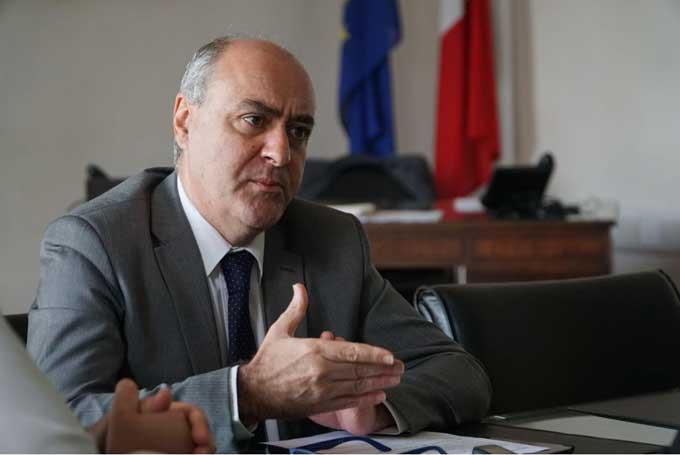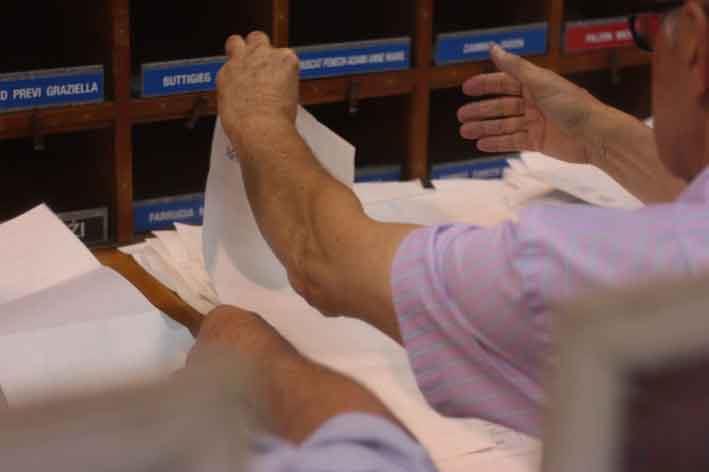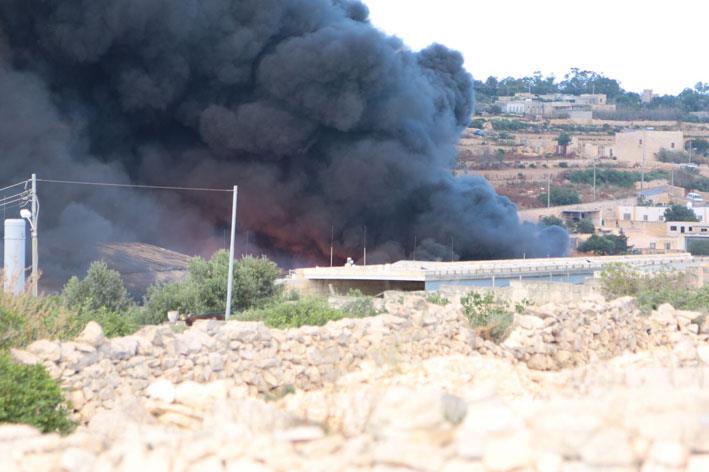The way Malta’s electoral system works gives rise to clientelism, Environment Minister Jose Herrera says in an interview in today’s issue as cross-party accusations of electoral favours hit the headlines this week.
In the interview, the recent WasteServ jobs controversies were raised, and it was highlighted that recent emails revealed how former Nationalist ministers, MPs, civil servants, party candidates, and representatives of WasteServ, between 2009 and 2013 under a Nationalist administration, would offer jobs to specific voters.
Asked whether anyone in his ministry had done anything similar with regard to WasteServ – putting anyone forward to be employed at the entity – Herrera said, “I never communicate directly on these issues. However, like every minister on the island, I have a customer care team.
“The political situation is what it is and people go to ministers and speak to their customer care team. It’s hypocritical to criticise a government because it has a customer care structure to cater for constituents when this has been the system for the past 100 years.
“The system is what it is. We have a small population where everyone knows each other. They expect politicians to go door-to-door and they expect politicians to accept constituents in their ministry – this is the system in Malta and I would be a hypocrite to say that it isn’t.
“Most of my colleagues and I have a customer care structure, people who know what to do. What they do exactly, I do not know. Today, for example, there were three such people and I refused to see them, so they went straight to customer care.”

Asked whether he believes the system should change, Herrera said, “Our electoral system, like all others, has its pros and cons. I cannot answer directly now but it is food for thought. The way our electoral system works gives rise to clientelism, because the system cries for it, but is the most democratic.
“It is one of the few systems that exist whereby the voter not only chooses the party he or she wants to vote for, but the candidate they want elected. That is direct democracy. If you look at the system in Great Britain or Italy, the party chooses its own Cabinet and the people have Hobson’s choice between a candidate who you like or one you do not like but have to vote for. Which is more democratic, ours or the other system? The other system will reduce the amount of clientelism as you are the only candidate on a list so you don’t need to meet constituents.
“In countries where ministers are not elected and are technocrats, they don’t need to meet constituents. Is it democratic for one to be governed by a person you didn’t elect, or is it more democratic to be governed by a person you elected? Every system has its flaws.
“The Maltese, who are obsessed with democracy, will never accept a system whereby the government is handpicked by a president who is not close to the people and is not elected. They will grumble because there is clientelism, but if you create another system, they will also grumble. Is the system good? No. Are the others good? No. Churchill said democracy is a bad form of government but the best in the circumstances.”

PN MP and former Opposition Leader Simon Busuttil recently spoke about the issue, saying that clientelism still plagues politics, and governments across the world are guilty of it, to a greater or lesser extent. This shows that members from both major parties have admitted that there is a clientelism problem on the island.
Busuttil had made a distinction between the “10 people who were reported to have been recruited under a PN administration as a result of the involvement of politicians,” and the alleged 250 taken on-board under the PL administration around the time of the last election. He alleged that the PL used a deliberate political strategy to buy votes by giving jobs on a large scale.
This newsroom asked the minister whether he can justify the large number of people employed at WasteServ around the 2017 elections, and whether he can say that this was not a case of jobs for votes.
“One hundred and twenty people were employed during that period. The majority of them were not employed after the Sant’ Antnin plant fire. There were some who were, and others who were employed after the election in summer. Therefore, the idea that all people employed in 2017 were employed in the run-up to the election is not true. There were people employed afterwards, hinting at the necessity of employing more people.
“WasteServ has a 40 per cent employee turnover rate. The employees are paid quite well, and while it is an important job, it is not pleasant to work in waste management. People are keen to go there, as the financial package, as per necessity, is better than other work offered to manual labourers, but then 40 per cent resign after a certain time.”

This newsroom highlighted that there were more hired than the numbers of those who left.
“In 2013 WasteServ engaged 450-500 people. Today there are around 700 people plus. This is easily justified. The MBT (Mechanical & Biological Treatment Plant) complex at the Malta North Plant only started operating at full blast at the end of 2016. This €50 million investment was a good idea by the Opposition when it was in government, and this present government embraced and concluded that project. Therefore, once there was this new complex operating at full blast, we needed to increase the human resources. The human resource demand came in 2017. There were projections already being made in late 2016 and 2017 showing more people were needed.
“The people who were employed in that period had been long-coming. So people were employed before the election and others after the election. Now we stopped a bit and after summer there will be another stock-taking exercise and probably more will be engaged.”
This newsroom indicated that numbers kept rising even after the Sant’ Antnin fire, and asked whether workers were transferred elsewhere, where they were needed.
The minister said that he does not interfere in the nitty-gritty operational running of WasteServ, which he leaves to the CEO and management.
“Wasteserv is a Limited Liability Company and I believe that the minister is neither a manager nor a CEO but a policy maker and legislator. On issues of policy, I send for Wasteserv officials on a weekly basis, where we discuss strategy, waste exportation and so on. I will never phone up the CEO and say I want person X to be a manager, or person Y transferred somewhere. The nitty-gritty is purely up to the management.”

He explained that the fire at the Materials Recovery Facility (MRF) at the Sant’ Antnin plant did not mean that work stopped given that part of another plant was transformed to deal with that waste. “The argument that since part of the plant burnt down, work stopped and people were employed for no reason is a wrong argument. We changed one of the lines at another facility to deal with recyclables and bulky waste, rather than just bulky waste. People who were working in the old plant (the one that burnt down), which was semi-automated, now had to work on these lines and were not sent home. Therefore, the argument that you don’t need workers because the plant burnt down fails.
“We also needed more workers to transport material to the Malta North. We had opened more Civic Amenity sites and needed more people to work on those sites. The amount and volume of work and investment made is three-fold to what is was in 2013.
“I don’t exclude that during or after summer, management might need more people after an assessment... Our recycling has to increase so we’ve shifted to three shifts, thus needing more people.”